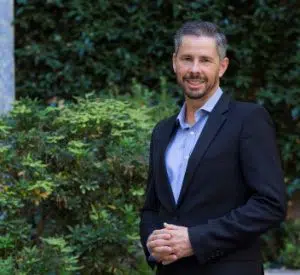HEALTH| 27.04.2022
What is “empty face syndrome”?
For more than two years, the pandemic has meant major changes in how we connect with each other. And this change has brought profound psychological and emotional consequences, even if they are not always obvious to the naked eye. Just as in the harshest lockdowns, after months of being locked up, some people were afraid to leave their homes (“cabin fever”), now the world is beginning to leave behind the mandatory use of masks, but there are already many people for whom these meant an element of protection beyond health and feel strange when they uncover their face.
It is a phenomenon that occurs primarily in young people and teenagers and involves factors such as insecurities and self-esteem. We spoke with José Miguel Sánchez, a psychologist specializing in business and sports environments, executive coach, and professor at IE University, about what is now known as empty face syndrome.”
What is empty face syndrome?
 It is a term applied to those who have developed a certain degree of mask dependency. This item has been associated with protection for the last two years. Thanks to it, we kept away the virus that has caused so many problems in the world.
It is a term applied to those who have developed a certain degree of mask dependency. This item has been associated with protection for the last two years. Thanks to it, we kept away the virus that has caused so many problems in the world.
That is why some people, faced with the possibility of appearing without a mask in crowded situations or places, develop anxiety-related symptoms that produce a feeling of being unprotected that does not reflect reality in many cases.
Who are the most susceptible to suffer from it?
It occurs more in teenagers and young people who during these two years have undergone physical changes they are not very happy with for various reasons. We are talking about acne, skin spots, dental treatments, growth of noses, mouths, or chins upon entering adulthood, etc. In short, these are normal changes that, instead of showing up gradually, show up all at once after two years of the mandatory use of a mask.
However, it is also occurring in adults influenced by a latent fear of infection or feeling vulnerable again in front of others.
Spending two years with more time with people on social networks than in person has also influenced this type of person. The main reason is that we cannot use the filters we have access to in many networks in real life.
What causes empty face syndrome?
For teenagers, young people, and adults, there are several factors involved: fear, sometimes excessive, of infection, insecurity during social events, low self-esteem, and rejection of who and how they are.
When all four converge, masks provide this type of individual with protection from disease and a supposed protection from social situations.
Why does it affect some people more than others?
It depends on our vulnerability to two types of situations:
- The first is the fear of infection due to being at risk or living with people with a depressed immune system.
- The second type of situation is related to the possibility of showing our faces in social situations. In other words, showing ourselves as we are without the protection of a mask.
In what situations or environments can it manifest?
This syndrome can appear in any environment. The key is that it is a situation or place where we have to interact with other people and, therefore, we have to show ourselves physically.
What can we do about this syndrome? (Do we have to accept it? Is it something negative to be get rid of?)
In most cases, this syndrome shows itself in a mild form, and apart from some occasional impediment, with time, the person will adapt to the new situation and it will gradually disappear. Even so, to accelerate this process, you can try to face a series of situations without a mask:
- Expose yourself to different social situations for a short time, once or twice a day.
- You can go to the park or take a walk in an open area where the distance between people is greater.
- You can go to a museum when it is less crowded.
- Go to a party or dinner with friends where you know the number of people will not be too large.
The most important thing is that you know that you are in control of the situation at all times. In other words, if you feel anxious, you can always put the mask back on regardless of the situation you are in.
In the most serious cases, which are also rare, seeking the help of a professional to understand what is behind these behaviors and changing them is always the best option.

